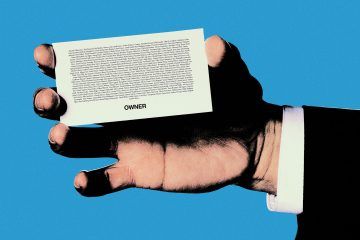 John Case in The New Republic:
John Case in The New Republic:
The 2020 Democratic field now teems with proposals to mitigate rampaging wealth and income inequality, from Kamala Harris’s plan to increase tax credits for low- and moderate-income families to Elizabeth Warren’s wealth tax. Such plans overlook, however, the principal set of relations that skew American capitalism upward: the ownership and operational control of business enterprises.
This failing is puzzling, because ownership and control so obviously matter. People who own companies, or who run them on the owners’ behalf, decide where and how much to invest. They decide how many people to hire, what sort of working conditions to provide, and—within broad limits—how much to pay those employees. All such decisions go a long way toward determining how well an economy serves its participants.
And decisions aside, ownership mightily affects the distribution of wealth and income all by itself. To take just one example, consider a successful midsize company—a regional restaurant chain, say, or a construction firm with $200 million in annual revenue and $10 million to $20 million in net profit. If it’s owned by one person or a small group, as is often the case, these owners may receive a million or more in income every year, and they have an asset likely worth tens of millions. Most of their employees will be lucky to earn $50,000 a year and save up a few thousand in a 401(k) plan. Surely broadening the ownership of business is a good idea.
More here.
